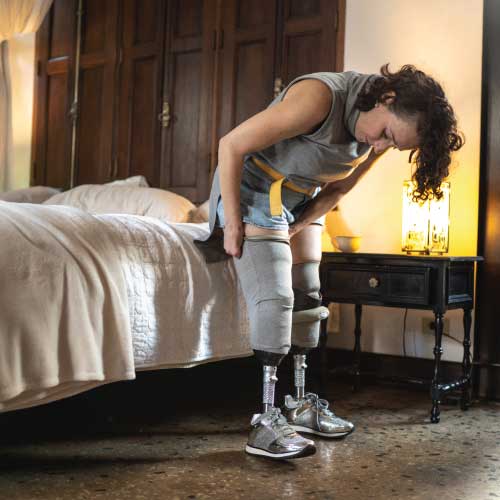This Cycling Clinic Wants To Help Amputees Regain Confidence
People experiencing limb loss from different walks of life would come to Rock Creek Park in Washington, D.C., to do one thing: learn how to ride a bike again.

One of the participants, double below-knee amputee Greg Hourigan, hasn't been on a bike in years, and he wants to explore on a bike again. Another participant, Cecil Brathwaite, used to cycle about 13 miles every other couple of days before her amputation. Now she's glad to be able to ride a bike again. Meanwhile, adaptive athlete David McCrae picked up cycling to keep fit as he got older. He was also there to help others learn.
These are just some of the participants in a previous session held by the new D.C. Amputee Cycling Clinic. The clinic is organized by Katie Savage, who wants to give other amputees the gift of mobility and confidence.
After 14 surgical complications, Savage lost her leg. But she realized she wanted to learn how to ride a bike during the pandemic. The entire experience has been life-changing for Savage, not only physically but also emotionally. The friends she met while learning how to bike set her up for success by helping her get fitted for a bike, making sure she had a functional prosthesis and all the right equipment. Savage wanted to give other amputees the same support she received.
Savage also runs another non-profit called Give-A-Limb Inc., which aims to raise funds to finance sports prostheses that might not be covered by insurance, as well as bikes to offer mobility to people coping with limb loss.
According to Medical Center Orthotics and Prosthetics' Jamie Vandersea, recreational activities like cycling helps people cope with limb loss.
"Getting back to recreational activities helps people cope with limb loss."
After amputation, they initially go through depression, Vandersea said in an interview for DCist. When they do these activities again, they go through an awakening and realize that they can do the things they used to do, albeit a bit different.
For more information on the cycling clinic's upcoming activities, you may email amputeecyclingdc@gmail.com.










































































